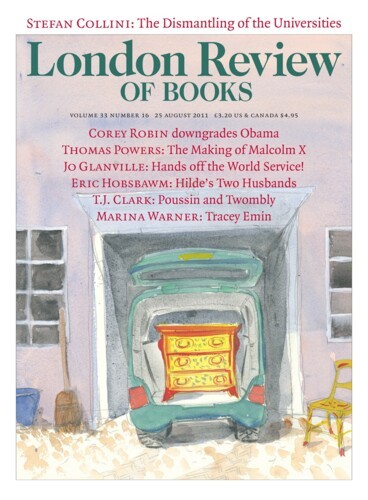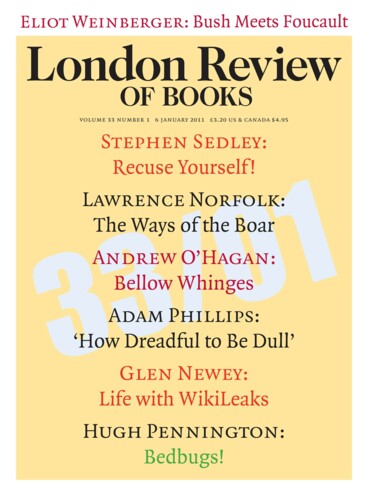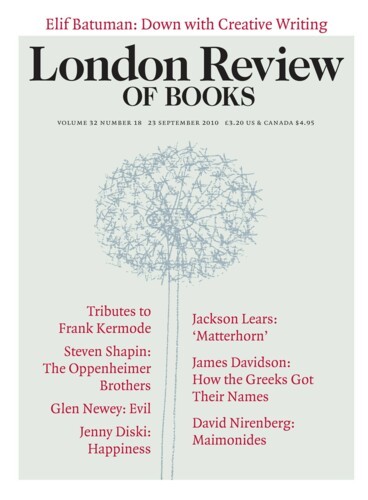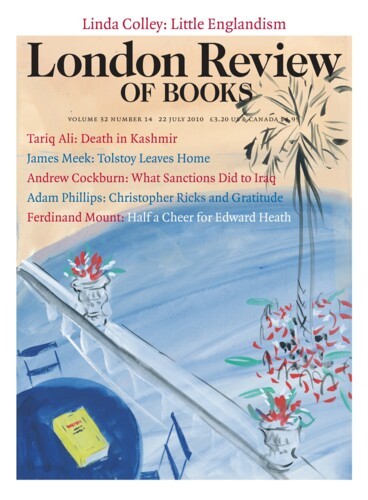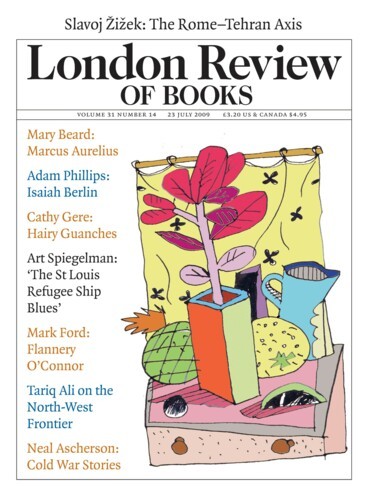Stag at Bay: Byron in Geneva
Adam Phillips, 25 August 2011
Byron looked at his own tumultuous life with an Enlightenment gaze: empirical, sceptical, agnostic, hedonistic. He was an ironic rationalist, who, like all rationalists, had an irrational personal history. He was interested in what, if anything, the two things – the tumultuous life and the Enlightenment gaze – might say about each other, but he never assumed that one could be used...
